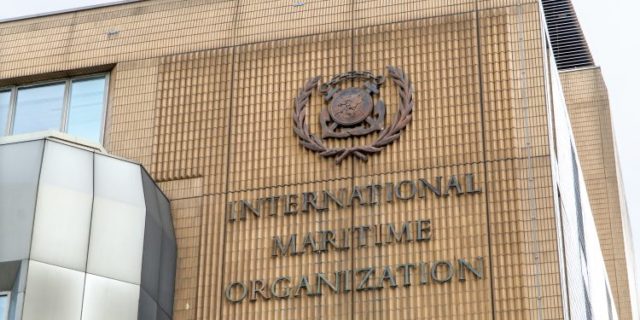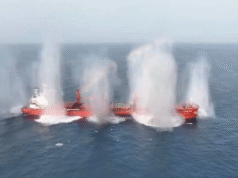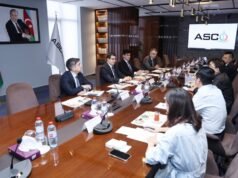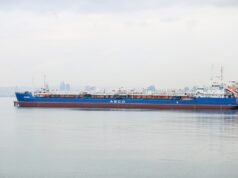The Maritime Safety Committee (MSC 105) of the International Maritime Organization (IMO) will take place on April 20-29, 2022, and will be held online from 11:00 am to 14:00 pm London Time each week day.
The MSC will consist of four main topics/parts:
- Safety and security in the Black Sea and the Sea of Azov
- Adoption of amendments
- Other agenda items
- Proposals for new work programme outputs
Safety and security in the Black Sea and the Sea of Azov
The Committee is expected to be updated on the impact on shipping and seafarers of the armed conflict in Ukraine. In March, the IMO Council met in Extraordinary Session (C.ES/35) and, among other decisions, requested the IMO committees to consider ways to enhance the efforts of Member States and observer organizations in supporting affected seafarers and commercial ships and consider the implications of this situation for the implementation of the Organization’s instruments, take appropriate action and report back to Council.
Adoption of amendments
#1 Modernization of the GMDSS to be concluded
Following a comprehensive review of the Global Maritime Distress and Safety System (GMDSS), the MSC is expected to adopt a set of amendments, to complete the work on modernization of the GMDSS and, consequentially, to enable the future use of modern communication systems in the GMDSS whilst removing obsolete requirements.
The amendments to be considered and adopted for entry into force on 1 January 2024 are to SOLAS chapters II-1, III, IV and V, and the appendix (Certificates); the 1988 SOLAS Protocol; the 1994 and 2000 HSC Codes; the 1983 and 2008 SPS Codes; and the 1979, 1989 and 2009 MODU Codes.
The MSC will also adopt a substantial number of related resolutions and guidelines, including a set of performance standards for relevant equipment.
#2 Amendments to IMDG and IMSBC Codes
The MSC is expected to adopt:
- Updates to the International Maritime Dangerous Goods (IMDG) Code, in line with the updates to the United Nations Recommendations on the Transport of Dangerous Goods, which set the recommendations for all transport modes.
- Updates to the International Maritime Solid Bulk Cargoes (IMSBC) Code, to include new definitions (including an updated definition for group A cargoes), references and requirements for cargoes which may undergo dynamic separation. Section 7 will be amended to cover cargoes which may liquefy or undergo dynamic separation. The section aims to bring attention to the risks associated with liquefaction or dynamic separation and the precautions to minimize the risk. This follows research by the Global Bauxite Working Group, which identified a newly identified phenomenon affecting some bauxite cargoes, known as dynamic separation, which can cause instability of cargo and ship. Other IMSBC Code amendments relate to updates to individual schedules and new individual schedules.
Other agenda items
#1 Adoption of domestic ferry model regulations
MSC 105 is expected to adopt recommendatory Model Regulations on Domestic Ferry Safety, approved at the last session. The draft model regulations provide framework provisions on domestic ferry safety for incorporation into national law. They cover a range of issues, including: certification; manning; safety management; navigation and communications equipment and life-saving appliances. They can be adapted by countries, as necessary, to suit their respective national conditions and requirements
#2 Maritime autonomous surface ships (MASS)
The MSC is expected to commence work on the development of a goal-based instrument regulating the operation of maritime autonomous surface ships (MASS). The aim is to adopt a goal-based mandatory MASS Code in 2025. The MSC will consider, with a view to approval, a road map developed by the Chair in consultation with the Secretariat to ensure the timely completion of this work.
The MSC will also be invited to endorse the establishment of a Joint Maritime Safety, Legal and Facilitation Committees (MSC-LEG-FAL) Working Group on MASS, as a cross-cutting mechanism to address common issues identified by the regulatory scoping exercises for the use of MASS conducted by each of the three Committees. The Joint Working Group would be addressing common issues identified by the three Committees and provide advice.
#3 Dissemination of MSI and SAR-related information over multiple GMDSS recognized mobile satellite services
The MSC will consider the report of the Correspondence Group on Dissemination of Maritime Safety Information (MSI) and Search and Rescue (SAR)-related information, established at MSC 103 to consider the mandatory use of all recognized mobile satellite service providers providing services within the area for dissemination of information by MSI and SAR information providers. The Committee will consider options to address cost implications for providers.
#4 Enhancing the safety of ships relating to the use of oil fuel
The MSC will continue to consider further measures to enhance the safety of ships relating to the use of oil fuel, following work by a correspondence group. A working group is expected to be established, with the aim of finalizing draft SOLAS amendments addressing the reporting of confirmed cases where oil fuel suppliers have failed to meet the flashpoint requirements; action against oil fuel suppliers in confirmed cases of deliveries of oil fuel not complying with the flashpoint requirements; and documentation of the flashpoint of the actual fuel batch when bunkering.
#5 Carriage of industrial personnel
The MSC will be invited to consider, with a view to approval, the draft new SOLAS chapter XV and the associated new Code for Industrial Personnel, developed by the Sub‑Committee on Ship Design and Construction. The aim is to provide minimum safety standards for ships that carry industrial personnel, as well as for the personnel themselves, and address specific risks of maritime operations within the offshore sectors, such as personnel transfer operations.
#6 Unsafe mixed migration by sea
The MSC will be invited to consider an update on developments regarding mixed migration by sea. The IMO Secretariat has been participating in the UNHCR-led Inter-Agency Group on Protection of Refugees and Migrants moving by Sea, set up to discuss, plan and execute coordinated joint action and advocacy to support the prevention of dangerous journeys by mixed migrants at sea, SAR activities and safe disembarkation of rescued persons.
The MSC will be invited to consider, with a view to adoption, a draft MSC resolution to emphasize the importance of effective and timely involvement of Governments in cases of rescue of migrants at sea by merchant ships.
#7 Piracy and armed robbery against ships
The MSC will consider the latest update on global trends relating to piracy and armed robbery against ships. The number of incidents reported to the IMO database has continued to fall, notably in the Gulf of Guinea, with 38 incidents reported in that region in 2021 – down from 90 in 2020.
#8 COVID-19 related matters
The Committee will be invited to consider the ongoing efforts of some Member States to ensure COVID-19 vaccination of all seafarers regardless of nationality or ships’ flag by means of special programmes and to encourage other Member States to take similar initiatives. The Committee will also be invited to consider the ongoing issue of seafarers being denied medical assistance in ports. Member States will in turn be invited to ensure seafarers’ rights, acknowledge their role as key workers and facilitate their repatriation and access to medical care.
Proposals for new work programme outputs
The Committee will consider a substantial number of proposals for new outputs at the session, in particular proposals deferred by MSC 104 due to time limitations. The proposals include, inter-alia, the following:
- Comprehensive review and revision of the 1978 STCW Convention and Code: The Committee will be invited to consider a proposal for the Sub-Committee on Human Element, Training and Watchkeeping (HTW) to start a comprehensive review and revision of the STCW Convention and Code. The aim is to adapt the Convention and the Code to new technical developments in shipping, environmental protection and climate change.
- Guidelines for the safety of ships using alternative fuels: Proposals have been submitted for the Sub-Committee on Carriage of Cargoes and Containers (CCC) to commence the development of guidelines for safety of ships using ammonia as fuel and to revise the interim recommendations for the carriage of liquefied hydrogen in bulk.
- Sexual assault and harassment in the maritime sector: The MSC will be invited to consider ways to address bullying and harassment in the maritime sector, including sexual assault and sexual harassment, as well as the development of relevant provisions to establish appropriate maritime workplace behavioural norms and essential human elements of psychological safety.
- Lithium battery fires: The MSC will consider a proposal to evaluate the adequacy of fire protection, detection and extinction arrangements in vehicle, special category and ro-ro spaces in order to reduce the fire risk of ships carrying new energy vehicles.







